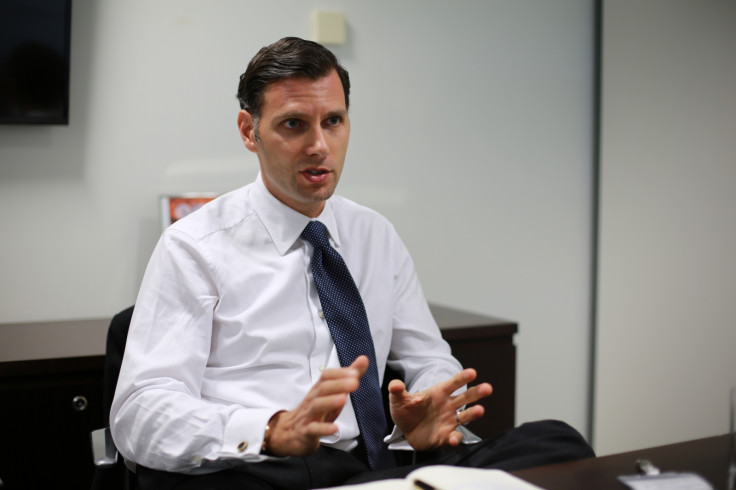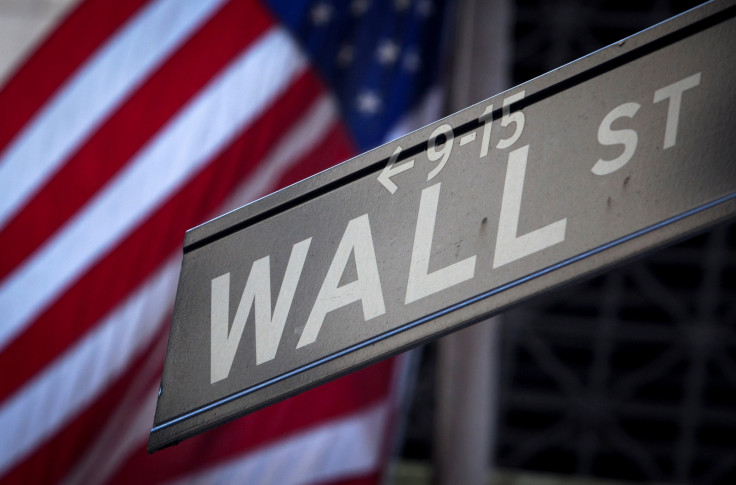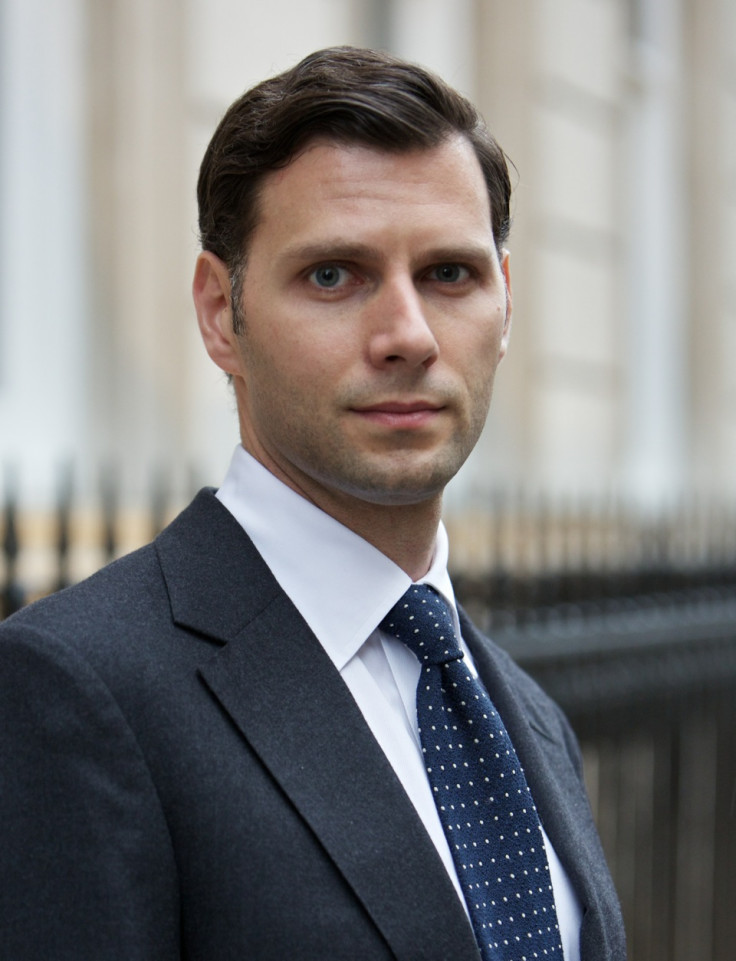Sussex Partners' Patrick Ghali reveals why hedge funds below $100m in managed assets aren't for him
Global adviser discusses his investing philosophy, surviving trying times and arbitrage opportunities in the current climate.

Advising institutional and high net worth investors on hedge funds they ought to entrust their money with is a challenging task, but for Patrick Ghali, Co-founder and Managing Partner of Sussex Partners, it's a familiar drill of his choosing.
In 2004, the former Bear Sterns executive and native of Switzerland, found the courage of his conviction to ditch the corporate life and enter the competitive hedge fund advisory business. Calling in his friend and seasoned investor Robin Nydes, the duo created Sussex Partners out of a Maida Vale, London home-office, named after the part of England both their wives hailed from.
"It took us six months, vigorous cold-calling and nearly 200 meetings to get our first client. However, we always believed our path to progress and recognition would be a 20-year project," Ghali tells IBTimes UK.
And that building project is proceeding rather well, with the home-office in Maida Vale, replaced by one in London's Savile Row, and 16 colleagues scattered around Zurich, New York and Tokyo to service clients spread across the length of the planet from Mexico to Singapore.
For the uninitiated, Ghali explains: "We advise institutional investors on their hedge fund allocation. We don't manage our own products; we sit between fund managers and investors. Fund managers want to talk to us because we have access to investors and vice versa."
Not touching anyone under $100m
Ghali says Sussex Partners looks at the universe of "eligible hedge fund managers". That is typically around 500-550 hedge funds spread around the world with over $100m (£78m) in Assets Under Management (AUM).
"Things kick-off with an initial screening and a lot of funds fall through because their numbers aren't good, or their AUM might be too small for us, or there might be an issue we come to know of."
Inevitable background checks follow. "One of the things we don't like in a fund manager is arrogance – that's a massive red flag. People make mistakes and it's normal to admit and learn from them. Arrogant people make mistakes and they don't admit it, and that's when they start covering things up."
Our clients are very conservative – they want to preserve capital, they don't want to get rich, they want to stay rich.
While size does matter, Ghali says he isn't myopic to the point of only considering AUMs.
"Quite the contrary, I have been critical of the 'big boys' with hefty AUMs. Look at the asset flow of the last 2 to 3 fiscal years; big hedge funds unsurprisingly got all the money since many think it's safe to go with them. But when you look at redemption figures over the corresponding period, they also came from the big guys, as disappointed investors realised the returns weren't there."
Ghali says it's a balancing act between investing in a hedge fund with an institutional infrastructure, where there is no start-up risk, but also not to opt blindly for a huge fund manager happy to collect "big fat" management fees with little performance and only a brand name to show for it.
"Our clients are very conservative – they want to preserve capital, they don't want to get rich, they want to stay rich, and are looking for a return on their money, not going to the casino. It's also about market returns not venture capital risk, and medium-sized funds fit the bill.
"So typically, we're talking an AUM of $300m with maybe $50m of the manager's own money. If the manager's own money is invested, we feel the fund's performance would be as important to him as the fees s/he demands."
Investing in one's own ideas and convincing Mum too
Ghali always believes completely in the advice he gives to clients. "I even put my mother's pension into one of our recommended funds when we were starting out and she is still invested in that fund.
"Of course, it makes me nervous, but it's just the kind of pressure I need to prove to myself that we invest in our own ideas. It has worked out well for her so far!
I even put my mother's pension into one of our recommended funds when we were starting out and she is still invested in that fund.
"There is a very simple logic here – one of the first questions we ask fund managers, when sussing their fund out is how much of their own money is invested in the fund? If the answer is none, then that raises issues about confidence in what they are trying to pitch to us."
Sussex Partners remains "extremely selective" about the funds it ends up recommending to clients. Ghali recounts a case where his team tracked a fund manager, who was then two months into his fund management journey, for five years before recommending him to clients.
From one solitary client back in 2004, Sussex Partners currently services institutional investors, fairly large $4bn family offices and private banks. "Some clients are looking for very specific ideas-based investment, others are looking to balance their portfolio. We also offer searches for clients looking for something different for their portfolio."
Madoff's bad press and the hedge fund industry
Ghali admits the hedge fund industry has a "bad press" problem in the wake of recent Wall Street malpractices, so much so that the Hedge Fund Standards Board is debating a name change in an effort to distance itself from a term that has become increasingly controversial.
"That's strange and funny in a way. Hedge funds are here to stay, if you call them something else doesn't mean they'll be gone. The other danger is that you often read in the papers the "average fund manager" has done this or that; as an allocator my job is to find better than average fund managers as my clients don't want to go to an average fund manager. So I find such generalisations in the media absurd too."
We had no exposure to Bernie Madoff or any of the funds invested in him, yet we still suffered when the scandal broke in 2008.
Ghali says misdeeds of some impacted his business as well. "I remember vividly when Bernie Madoff was exposed [in 2008] for operating a Ponzi scheme. A friend of mine, who owned a very large fund management business, called me up late at night correctly predicting it would be bad for the industry. Suddenly hedge funds were the bogeymen of 2008-09.
"We had no exposure to Bernie Madoff or any of the funds invested in him. We'd sussed his outfit out earlier. Some years prior to the scandal, one of our partners had met Madoff's representatives in New York and walked out of the meeting feeling like the stupidest person in the world. Because for all his expertise, [...and he used to run European Fixed income sales at Solomon brothers...], my colleague could not figure out how Madoff made money.
"So we never had any client allocate investments to Madoff, yet we still suffered because the whole industry took a knock as investors pulled out their money. Those were tough times; but we didn't give up and got back on track within a few fiscal years."

Bad press received by offshore funds is the latest kerfuffle on the horizon and Ghali is nonplussed. "There is a big trend towards bringing funds onshore and regulators are making it mighty hard to invest offshore. There is a perception that if you have an onshore structure it's safe, and that's a dangerous way of thinking.
"A lot of investors tell us if they are in the market for buying into an offshore fund they will, as many think it's a more pure unconstrained representation of what the manager wants to do. All a clampdown on offshore funds would do is limit choice for investors."
Big fan of Japan and arbitrage
By his own admission, Ghali clocks up the air miles as his is still a people business. "Having face-to-face time is extremely important for us. That's how you build credibility. Our clients are investing big amounts and they want to know they can rely on you, and not find you hiding under your desk should something go wrong."
The avid contemporary art and South African fine wine collector, who discovered a fascination for Japan in the late-1990s, has since put his faith in Japanese funds too and for good reasons.
"As of February 2017, the collective AUM of US hedge funds is an estimated 4.4% of the country's total market capitalisation. The equivalent figure for Europe is 6.36%. In contrast, Japanese hedge fund assets are estimated at only 0.84% of the market capitalisation. So you if deem hedge funds to be smart money investors, you have a lot less smart money chasing the same ideas.

"Additionally, the correlation among Japanese managers is much less than between US or European managers, which means that they must be doing something different. If you speak to US or European managers everyone is talking about crowded trades, everyone has got the same ideas and that creates problems. In Japan, it's not like that and correlation figures bear that out."
Many Japanese fund managers are more diversified than their western peers with exposure to 200 companies and Ghali regards it to be a good thing as they can find "gems you can't find elsewhere".
However, fascination with Japan is not blind loyalty. "Tomorrow, if everybody goes into Japan and the return ratios change, then we'll no longer be excited by the market."
Emerging Asia, primarily China, unsurprisingly finds favour with Ghali as his outfit tends to prefer arbitrage opportunities. In simple terms, arbitrage is the simultaneous act of buying and selling assets be it securities, currencies or commodities in different markets or in derivative form to take advantage of differing prices for the same asset.
"In the US, it has become very difficult to generate good returns on arbitrage with a lot of very smart people chasing the same ideas. But in China, you can arbitrage between mainland, Hong Kong and Taiwan-listed companies, US-listed ADRs [American depositary receipts] of mainly tech companies and create a lot of opportunities via fund of funds."
Ultimately, it's about chasing opportunities, and on the strength of his growing business in the region, the Sussex Partners co-founder believes Asia currently has a pretty good batting average, quite like his boutique firm.
© Copyright IBTimes 2025. All rights reserved.





















